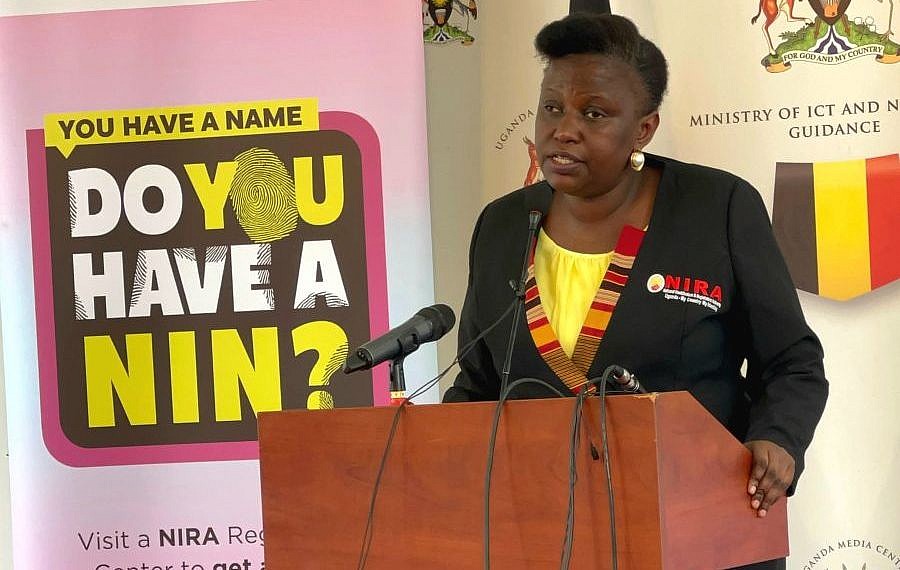The National Identification and Registration Authority (NIRA) has disclosed that more than 450,000 people currently listed in the National identification register share the exact same three names and date of birth.
This surprising statistic, revealed by NIRA Executive Director Ms. Rosemary Kisembo, has reignited debate over the effectiveness, security, and privacy of Uganda’s national identity system.
“In our system, we have over 450,000 people who share the same three names and the same date of birth,” Ms. Kisembo said during a stakeholders’ meeting held at the Uganda Law Society House in Kampala.
The revelation came as legal and privacy experts raised concerns about how the authority is managing and protecting sensitive personal data, especially during the ongoing nationwide mass enrollment and ID renewal exercise.
The campaign, which is part of preparations for the 2026 general elections, aims to update expired IDs, correct inaccuracies, and ensure that all eligible citizens are registered.
At the heart of the concerns is the collection and use of biometric data fingerprints, facial recognition, and iris scans amid growing fears of data misuse and breaches.
Advocate Apollo Muhindo, a participant at the meeting, criticized what he described as inadequate safeguards over sensitive information.
“We are dealing with highly sensitive personal data names, dates of birth, biometrics, and other unique identifiers,” Muhindo warned adding that this isn’t just a technical matter, it affects the rights, dignity, and safety of citizens.
In response, Kisembo strongly defended NIRA’s reliance on biometric technology as a critical safeguard against identity duplication and fraud, especially in cases where names and birthdates are identical.
“You can’t rely on names alone in a country where hundreds of thousands share the same ones,” she said.
“That is why we insist on biometric identifiers as the only way to guarantee uniqueness in identity.”
She further clarified that while demographic data like names and dates of birthcan legally be corrected under existing laws when errors are found, core biometric markers remain the most reliable identifiers.
“Biometric data like fingerprints, facial recognition, and iris scans are essential to avoid duplication and fraud,” she stressed.
According to NIRA, 27.8 million Ugandans have been registered in the National Identification Register, but only 17 million have received their national identity cards so far. The current exercise, being conducted in all parishes nationwide, is intended to bridge that gap and enhance the credibility of the voter roll ahead of 2026.
In response to the growing public scrutiny, Kisembo noted that NIRA is not operating in isolation. She emphasized that the authority is working closely with the Personal Data Protection Office to evaluate and improve its privacy protocols.
Related Article: Over 10,000 National ID Applications Rejected for False Information – NIRA
“We are actively working with the Personal Data Protection Office to audit and improve our systems,” Kisembo said.




